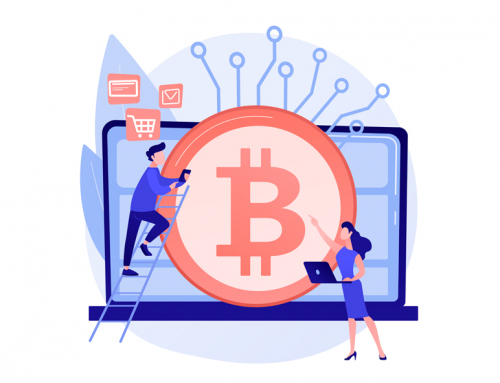New times are approaching and customers will evolve, drastically and quickly to this new scenario. Adapt or die. There is no other option and the entrepreneur must bet on omnicanality, progress and eliminate perseverance in the no to change. Selling will be a matter of changing, moving fast and being digital.
What will these consumers/customers/users be like?
Digital
Online commerce has made the biggest qualitative leap in its history. Thousands of Spaniards have bought fresh food products on the Internet for the first time. Until now, very few ventured to buy sea bass, hake, beef or lamb through an application. And, in fact, online sales only accounted for 3% of food sales. Confinement has raised that percentage to more than 10%, a spectacular growth that is a challenge for companies like El Corte Inglés, Mercadona, Carrefour, Dia and Lidl. All of them have made great progress in online sales, but will have to accelerate even more.
Interconnected
Many people did not know that video calls existed, and now they make one every two or three days to talk and see their children and/or grandchildren in the distance. Many more Spaniards have discovered the advantages of being interconnected, both on a personal and work level. This greater connectivity will change the way companies and consumers relate to each other. Brands will have the opportunity to talk directly with their customers to learn about their tastes and concerns.
Obsessed with health
Sales of prevention and health care products are showing increases of more than 100% during the pandemic. One of the great lessons we have learned from this crisis is that health is always the most important thing, and not just when we don’t win the lottery. Consumers are now more aware of their well-being and will give priority to healthier products.
Awareness
The lessons of solidarity that health workers, the State Security Forces, the Army and thousands of companies are giving to Spanish society will leave an indelible mark on all citizens. Customers will give priority to companies that are more committed to society and that make their brands useful and provide social value. To this end, it is essential that companies are able to turn their workers into brand ambassadors. It is very remarkable, for example, the protection and motivation measures that companies are carrying out with their employees, who from the establishments do a commendable job.
Reflective
Confinement has radically changed the way we live. If even in the state of alarm our favorite phrase is that it did not give us life and that we did not have time for anything, for the last month we have had all the time in the world and we have learned to reflect on ourselves. Meditation, mindfulness, yoga or fitness are concepts that will be relevant in the future. Consumers will think much more when they consume and plan their purchases.
Considered
We have all suffered in this pandemic the loss of a loved one, and in many cases these are older people who were forgotten by society. “It’s okay, the virus only affects older people.” We heard this unfortunate phrase a lot until shortly before the state of alarm was declared, which reflects the contempt with which society has treated the lives of the elderly. We have also realised that there are many older people who are alone and that the institutions we have set up to take them in are very fragile. The deaths of our parents and grandparents will spur us to build a much more intergenerational society. Services and products for the elderly will be more appreciated by consumers.
Demanding
Customers will no longer be willing to pay for products of similar quality. They will be comparing prices, qualities and shops thanks to the invaluable help of the Internet, and they will demand that companies offer them not only a product but also a shopping experience. Consumers will reward those brands that know how to personalize their items more and better.
Emotional
Generating emotions and achieving an emotional bond between company and client based on reciprocity will be key for the future. It is a question of seeking originality, a different way of acting with the public and transmitting a series of values that will seduce the customers. Turning consumers into fans, as companies like Apple and Starbucks have done, offering the most expensive products on the market and yet having a legion of followers who not only buy their items but also recommend them. Social networks are a magnificent instrument for generating emotions, and the presence of companies in the environments of Facebook, Twitter or LinkedIn is no longer perceived as something annoying for Internet users. However, brands must base their strategy on authenticity and transparency.
and above all very important to note…
Infidels
It’s very easy to change. The new consumer is not only smarter and more critical, but has also thrown himself on the mountain of infidelity. The lover -whether it’s a store, a product or a brand- has to adapt to her tastes and not the other way around, as has been the case until now. He has also become less lazy and is no longer so lazy to change his electricity, gas and telephone supplier if he can save money. And, of course, he has no qualms about changing supermarkets, or buying potatoes and milk at one and fish and meat at another, and even doing much of the shopping on Amazon.
Complex
How do I now adapt my business to this anarchic and complex consumer, so fragmented in his tastes, with multiple moments of consumption and such changing behaviors for each purchase depending on the type of product, the place or the day? Companies have to study their offer and the structure of their business very well in order to reduce costs and eliminate the elements of the business chain that do not add value. The main reference for companies will be to know and promote the real reason why customers value them. They must also bear in mind that the traditional family does not exist, and that we are now facing an unstructured model. 25% of households are made up of people living alone and another quarter are couples without children.
For all these reasons, they must channel their obsession with exploring new ways of selling, not seeing digitalization as a fashion. Only 7% of companies in Spain have a clear digital strategy. Not only having social networks, a website or an online store, it must be a strategy that requires reflection, purpose, managing change.
If I have a clothing store the future will be online, but not as a “discounted” version of myself. There must be motivation for the customer to buy, with improvements on going to a physical store, communication, a lot of communication, which is not only search engine positioning (essential). In a physical store it will not be easy to get people to go into a fitting room, touch things, try clothes, … they will have to know that they are safe, and that the environment is very safe, almost annoying how safe it is. At home we will all feel safer, we will have more ease to choose.
The food online will be habitual. Even to be taken to a park, or to the beach. If your business is catering, you should not ignore this. Someone may even come by and want you to take their food to a certain place, later, or tomorrow. The premises must be adapted to the intimacy of the tables, far away, separated, covered,…
The logistics are going to shoot up in such a way that you will have to think of alternative methods such as collecting from the shop without getting out of the car, like in the auto-burger. You buy it with your mobile phone, they tell you when it’s there, you go to get your order, open the trunk, they put it in and you leave. We avoid “strolling” with strangers, waiting next to “strangers” to pay, … this will cause some changes in the philosophy of compulsive buying stores, with “yellow roads” or neuro-studied tickets. A new concept of shopping centers more of leisure (already in progress) with other activities: dentist + car wash + shopping collection.
How to sell?
Online (that’s for sure)
Offline. If you have that channel open, keep it open, but make it better. Nobody will enter a supermarket without gloves, mask, with a feeling of dirt, if there are no pre-filters, with capacity control, … your business the same
With commercials. Everyone will want to sell if they get a commission.
Franchises or space distributors. If you have a product/brand offer others to sell part of your space with a margin. From each store make a Corte Inglés.
And how to do it all? How to control the sale online, offline, orders, staff, distributors, stock, margins, ….
With a lot of D I G I T A L I Z A C I O N






